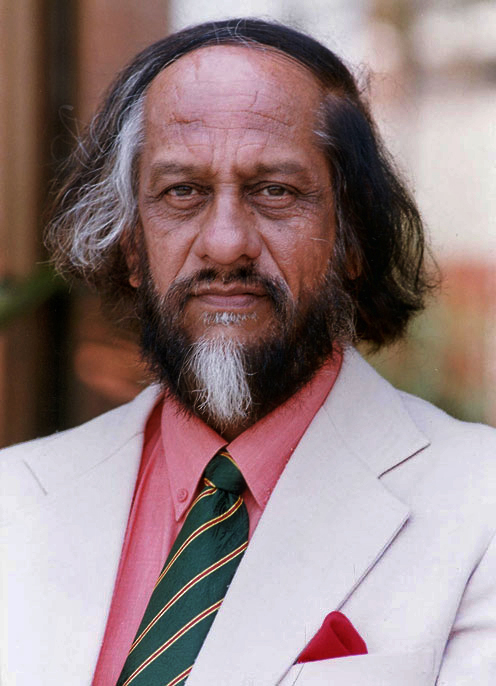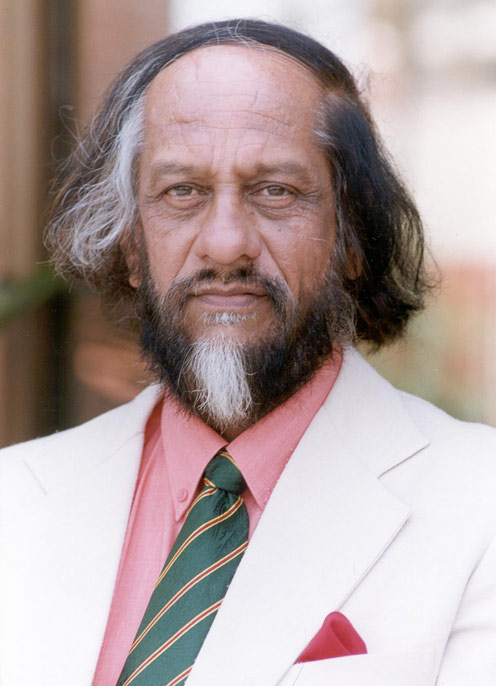 Rajendra PachauriNASHVILLE, Tenn. — It’s not every week you get to chat with not one but two Nobel Prize winners. After talking to Al Gore at the summit where he rallied volunteers for his Climate Project, I caught up with Rajendra Pachauri, who also spoke at the gathering.
Rajendra PachauriNASHVILLE, Tenn. — It’s not every week you get to chat with not one but two Nobel Prize winners. After talking to Al Gore at the summit where he rallied volunteers for his Climate Project, I caught up with Rajendra Pachauri, who also spoke at the gathering.
An engineer and economist who has chaired the Intergovernmental Panel on Climate Change since 2002, Pachauri was co-recipient of the Nobel Peace Prize with Gore in 2007. In his presentation at Gore’s summit in Nashville, Pachauri delivered grim news about the latest science on climate change. But in an interview with Grist, he was optimistic about the prospects for climate action in the U.S. and in Copenhagen, where world leaders will gather in December to negotiate a new global climate treaty.
Though he said the change in the American approach to climate change under President Barack Obama is “quite remarkable,” Pachauri warned that the president should not arrive in Copenhagen without a meaningful commitment to confront climate change. “He should come there provided the U.S. is willing to commit and follow through with something really strong,” said Pachauri. “Because if it’s going to be much lower than what the Europeans have committed to, I’m not too sure it will be seen as a plus.”
Q. What’s your message to folks here who are doing organizing work in the U.S.?
A. The message is very clear: In a democracy, in the ultimate analysis, leaders and governments will do what the people want them to do. And therefore I think, given the facts of the case, given the ultimate understanding of climate change, if one can mobilize the people, if we equip them with knowledge, you will see change taking place in the right direction.
Q. Are you optimistic about the process here in the U.S. right now?
A. I am, because let’s face it, the change that is taking place is quite remarkable. Who would have anticipated that someone like Barack Obama would become president of the U.S.? And fortunately he’s been very consistent with his statements. He sticks to what he said before being elected, and he’s brought in an administration of people who are really committed to action in this field. So I feel very optimistic, and some leaders in the Congress are also very focused on action.
Q. We have a climate bill in the House now. Are you optimistic about what you’ve seen there?
A. Yes, I think it’s a step forward. I’m not saying that it’s the most perfect piece of legislation, but it’s a remarkable break from the past, and to that extent I think it has to be commended.
Q. What needs to happen between now and Copenhagen to make sure all of the right pieces are in place?
A. I personally think you will see negotiations sort of snowballing. Things may seem rather static at this point in time, but as we get closer to Copenhagen, you’ll find people realizing that time is short and we’ve got to get moving. In the end, my expectation is that Copenhagen will give us a good agreement.
Q. Leaders in the U.S. have been worried about China and India, and how willing they are to participate in this process. What signals have you seen from them recently about their willingness to be part of this?
A. One has to realize two very important facts. Firstly, that in per capita terms, the U.S. is way above these countries [in greenhouse-gas emissions]. You take the case of India: There are 400 million people who don’t have access to electricity. Secondly, the problem of climate change is not caused by current emissions. It’s the result of cumulative emissions that have taken place in the past. So I think it would be very unfair to completely ignore historical responsibility. Therefore, I think what one should do is to first set an example, and then expect others to follow. But if one makes it conditional on China, India, and Brazil to take the same steps, we’re not going to get an agreement. Then that’s really a cop-out.
Q. Are the leaders in those countries going to want to do their part, though?
A. Yes, yes. I have no doubt about it. But to expect them to be in the same company is asking for a very unfair solution.
Q. Do you think Barack Obama needs to come to Copenhagen at the end of the year himself?
A. Well, he should come there provided the U.S. is willing to commit and follow through with something really strong. Because if it’s going to be much lower than what the Europeans have committed to, I’m not too sure it will be seen as a plus. So he should only come there like Mr. Al Gore came to Kyoto [in 1997], and brokered a deal over there. Now if he is in a similar position, that might be all right. Otherwise, I’m not too sure.
Q. And what happens if a deal isn’t reached in Copenhagen this year?
A. I think that will certainly lead to a great loss of momentum that’s been created, and to recapture that again would certainly be very difficult. It would be an enormous lost opportunity, and I hope that doesn’t happen.



